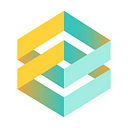Key ways that blockchain can revolutionize the Internet of Things (IoT)
“Blockchain technology is transforming the way IoT is viewed and is impacting on a vast range of industries. It is providing a way to secure networks by preventing compromised devices from wreaking havoc in business processes.”
What is blockchain?
Blockchain is categorized as a system with a single distributed ledger, documenting all transaction information, which is unchangeable. This ‘unchangeable’ nature provides trust and accountability for the transactions that blockchain documents and verifies. The beauty of blockchain lies in the fact that it is not owned or controlled by a single entity, but rather that it is decentralized, hence controlled and validated by users or more specific ‘miners’.
Blockchain also is devoid of a third governing party that controls and oversees the processes of transactions. This negation has the potential to save time and money with a focus on a direct Peer-2-Peer transaction, where Smart Contracts would reinforce trust and security. It also has the potential to speed up long laborious paper intensive processes by offering a single distributed ledger that can streamline business processes, making them more efficient.
Blockchain has the ability to revolutionize the current state of IoT by:
1. Improving security with blockchain’s ‘unchangeable’ nature
2. Saving time and money by improving workflow and administration instantaneously in transport and logistics.
3. Increasing supply chain efficiency and speed by cutting out third parties
4. Securely allowing IoT devices to communicate and autonomously trade in a secure way, which will eventually enable the Economy of Things.
The future of blockchain and IoT
For decades, centralized client/Server paradigms have connected generic computing devices successfully by utilizing the Internet to harvest IoT data and process transactions. These processes are, however, not sufficient enough to support the growing needs of the IoT ecosystem of tomorrow. Furthermore, the growing expenses to build and maintain IoT infrastructures is crippling.
Decentralized IoT networks are the future of IoT
Blockchain is the missing link that will enable scalability, privacy and reliability of IoT transactions. Blockchain technology can serve as a tool to track and coordinate connected devices, enable processes and ultimately support the billions of transactions that will take place within the Internet of Things, making use of a transparent, impenetrable distributed ledger. Ultimately, decentralized marketplaces will enable a global Economy of Things, where IoT data can be traded and exchanged autonomously.
“The decentralized, autonomous, and trustless capabilities of the blockchain make it an ideal component to become a fundamental element of IoT solutions.”
eciotify and the Economy of Things
eciotify aims to empower the Economy of Things by democratizing IoT data through the decentralized creation of marketplaces.
To find out more contact us.
